For practices
VetCompass™ is an efficient and sustainable surveillance programme that provides enormous opportunity for the practice-based study of companion animal health and disease in the UK.
Veterinary practitioners are the ‘eyes and ears’ of the profession and as such practice clinical record systems house a wealth of disease data. VetCompassTM use this information for epidemiological research and, to facilitate this, has developed a secure system for the transfer of anonymised patient records from veterinary practices to a central database. This system is currently used to collect records from over 1,800 veterinary practices and the project continuing to grow.
VetCompassTM is designed to fill knowledge gaps in veterinary medicine and produce practical healthcare information that can:
- Underpin and direct evidence-based veterinary medicine
- Assist the training of veterinary students and professionals
- Identify welfare and research priorities, contributing to long-term improvements in animal health and welfare.
For further details of participation, please click on the tabs below.
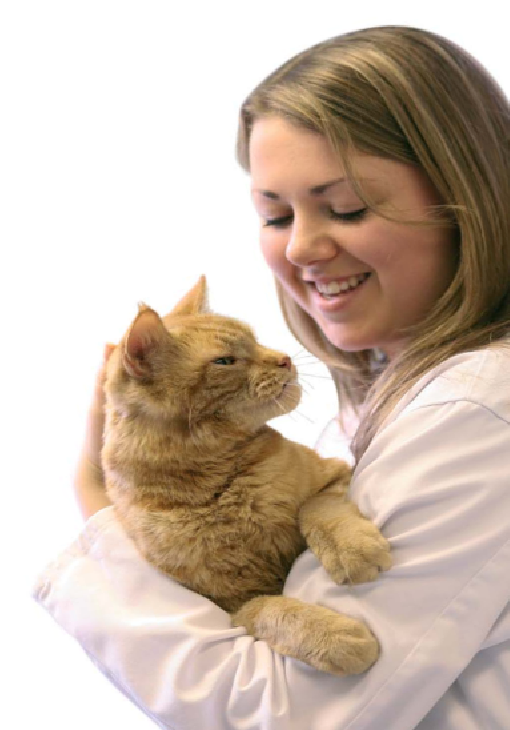 What does it mean for participating practices?
What does it mean for participating practices?
On a day-to-day basis, there is no change to practice workflow and patterns. Practicing vets already record high quality clinical records and VetCompass does not request that any extra information are recorded. VetCompass simply uses the information that practices already record and applies cutting edge data-mining techniques to analyse these huge volumes of data. Some veterinary computer systems already offer the option to record standardised ‘VeNom’ diagnosis terms during episodes of clinical care. Tagging such terms to clinical records facilitates finding cases of specific disorders but is not a requirement of participation. Record tagging also makes it easier for practices to analyse their own caseloads, e.g. for clinical audit and benchmarking purposes. Participating practices are given access to their own clinical data via an online database that is specifically designed for research purposes. These data can then be used by practices for internal audit or studies that lead to publications. Practices promote their participation in VetCompass to their clients. Promotional poster and leaflets are provided for waiting room displays. Promotion can also be via practice websites and social media.
What does it mean for practice clients?
The RCVS has agreed that VetCompass operates under an ‘opt-out’ client consent process for data-sharing because only anonymised data are shared. This means that the default is that all animals are included and no further action is necessary unless clients do not want to share their pet’s records. In that case, the practice simply records ‘opt out’ in the clinical notes or selects this term ‘opt out’ option from the VeNom diagnosis list.
What information is collected?
VetCompass only collects anonymised clinical and demographic data. The data fields collected include the summary diagnosis term (VeNom code), free-text clinical notes and treatment details, along with date of birth, sex, breed, microchip number, insurance status and partial postcode. Animal names, client details and financial information are not shared.

How secure is the VetCompass database?
VetCompass employs stringent protocols for the secure transfer and storage of data and fully complies with the Data Protection Act. The database holds anonymised information only that is encrypted and password-protected
What does the VetCompass team use the data for?
VetCompass data contribute to a diverse range of MSc, PhD and other research projects that aim to reveal novel insights into the health of small animals. These results contribute to the evidence base that vets now use every day to improve the health and welfare of their patients. To date (June 2021), VetCompass has published over 85 peer-reviewed papers, with many more in progress. For details of current and previous projects see: Projects
Are project results truly anonymous?
Yes. VetCompass does not collect any sensitive animal or owner information therefore individual animals or owners are not identifiable in project results. Disease mapping is conducted to postal sector level (using partial postcode) only, preventing the identification of specific premises or individuals.
How is the programme funded?
The VetCompass programme is truly collaborative and is supported by a diverse range of external funders as well as being part of the Royal Veterinary College . Some of these funding bodies include:
|
|
|
|
|
Has VetCompass received ethical approval?
VetCompass has received full ethical approval from the RVC Clinical Research and Ethical Review Board. In addition, the programme has been reviewed and is supported by the RCVS.
How does VetCompass benefit my practice?
- VetCompass is a valuable source of healthcare information that supports evidence-based practice. Results from all published VetCompass studies are available on the VetCompass website, along with an owner-friendly ’Learn zone’.
- Practices can access their own practice’s ‘data silo’ VetCompass database where you can evaluate your records in an easy-to-search format.
- Compliance with RCVS Practice Standards Scheme which stipulates data sharing with a national research project such as VetCompass.
- Enhanced public perception that your practice is engaging with national scientific research to improve animal welfare.
- Greater staff satisfaction by contributing to both the care and welfare of patients at an individual level but also at a population level.
Contact us
If you have a general enquiry or are interested in participating in the project, please contact the VetCompass team: vetcompass@rvc.ac.uk.
To contact specific members of the VetCompass team, please see our contact page.
A printable information sheet for small animal practices is available here.
What does it mean for the participating practice?
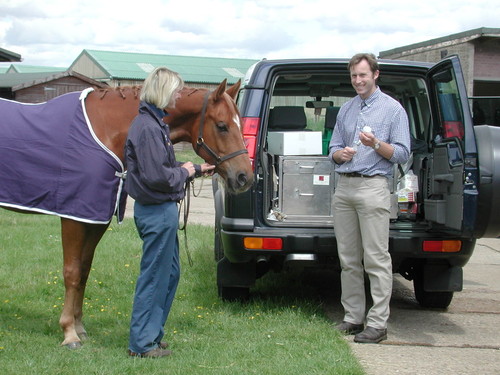
Following enrolment, a software upgrade is provided by your practice management system provider. This is to embed the summary term (VeNom code) list, used to standardise ‘diagnosis’ recording, into your system and to enable the automated collection of anonymised clinical records. To simplify analysis, we ask that following each episode of care, the patient record be tagged with the summary term that ‘best’ explains the reason for visit. This may be a procedural term, diagnosis or presenting complaint. Record tagging not only helps us, but also makes it easier for you to analyse your own caseload, e.g. for clinical auditing. The summary term, along with associated demographic data, treatment details and clinical notes are then automatically transferred to the secure Equine VetCompass database for analysis.
Practices are asked to publicise project participation to their clients. This can be easily done through practice websites and social media; promotional poster and leaflet will also be provided for display in client waiting areas.
What does it mean for a practice client?
With regards to client consent for data-sharing, the RCVS has agreed to Equine VetCompass operating under an ‘opt-out’ process. This means no further action is necessary for clients wishing to participate, however those not wanting to share their horse’s records are asked to notify the practice so that an ‘opt-out’ code can be applied to their account.
What data is collected?
Equine VetCompass collects anonymised clinical and demographic animal data only. This includes the summary term (VeNom code), free-text clinical notes and treatment details, along with breed, sex, microchip/passport number, insurance status and partial postcode. Personal client and financial details are not shared. Equine VetCompass employs stringent protocols for the secure transfer and storage of data and fully complies with the Data Protection Act. The database holds anonymised information only and is password-protected.
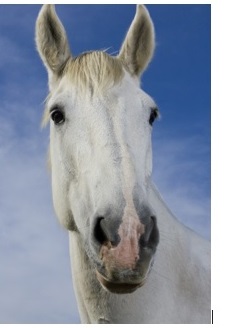 What does the Equine VetCompass team use the data for?
What does the Equine VetCompass team use the data for?
Equine VetCompass conducts epidemiological research to determine the occurrence and distribution of disease, to identify risk factors influencing health status and to study clinical progression. This first study will estimate the prevalence of, and identify risk factors for, the most common conditions affecting the general horse population. However, the project offers unlimited potential for on-going practice-based research. The project aims to grow and continue indefinitely with the long-term monitoring of horse health necessary to detect new and changing threats to equine health.
Are project results truly anonymous?
Yes. As Equine VetCompass do not collect any sensitive animal or owner information, individuals are not identifiable in project results. Disease mapping is conducted to postal sector level (using partial postcode) only, preventing the identification of specific premises and individuals. Equine VetCompass also ensure complete practice anonymity.
How is the project funded? 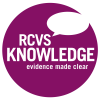
Equine VetCompass is funded by the RVC Mellon Fund for Equine Research and RCVS Knowledge.
Has Equine VetCompass received ethical approval?
Yes. Equine VetCompass has been approved by the RVC’s Clinical Research and Ethical Review Board (reference number: 2016 1460). In addition, the project has been reviewed and is supported by the RCVS.
How does Equine VetCompass benefit me?
- Equine VetCompass aims to become your ‘knowledge hub’ a valuable source of disease and healthcare information that can be used to support evidence-based practice.
- Your improved practice management system will allow for the efficient evaluation of practice caseload. Useful for identifying potential areas for business growth, benchmarking performance and undertaking clinical audit.
- You will also have access to your practice’s ‘data silo’ in the Equine VetCompass database where your shared records are stored in an easy-to-search format.
- Data-sharing contributes towards the RCVS Practice Standards Scheme Award for Team and Professional Responsibility.
- Collaborating practices will be recognised with a hyperlinked logo on the Equine VetCompass webpage and acknowledged in all publications.
- Practices will receive regular project updates, personalised summaries of practice caseload and a shortened version of our findings.
For further details:
Please contact Sarah Allen by either email seallen@rvc.ac.uk or phone: 01707 6666012
A printable information sheet for equine practices is available here.
What does it mean for the participating practice?
Participating doesn't require extra recording information. VetCompass uses information in practices clinical records. We encourage participating practices to use the standardised diagnosis, breed and medication lists (VeNom code) which are offered by some of the practice management system providers. Tagging such terms will help to identify cases of a specific disorder, estimate the prevalence of medicines usage and describe the characteristics of animals receiving these treatments. Record tagging not only simplify the analysis but also, makes it easier for practices to analyse their own caseload. De-identified clinical records from practices are transferred securely to Farm VetCompass. Promotional Leaflets will be provided to participating practices to promote VetCompass to their clients.
What does it mean for a practice client?
RCVS has agreed to Farm VetCompass operating under an 'opt-out' process. This means no further action is necessary for clients wishing to participate, however, those not wanting to share their animals' records are asked to notify the practice so that an 'opt-out' code can be applied to their account.
What data is collected?
Farm VetCompass collects anonymised clinical and demographic animal data only. This includes the summary term (VeNom code), free-text clinical notes and treatment details, along with species, breed, sex, insurance status and partial postcode. Personal client and financial details are not shared.
How secure is the VetCompass database?
Farm VetCompass employs stringent protocols for the secure transfer and storage of data and fully complies with the Data Protection Act. The database holds anonymised information only that is encrypted and password-protected.
What does the Farm VetCompass team use the data for?
Farm VetCompass conducts epidemiological research to estimate the prevalence of antimicrobial usage in farm animals, to describe the main clinical indications and demographic characteristics of farm animals receiving antimicrobial treatment and the risk factors for receiving antimicrobial therapy. However, data collected by Farm VetCompass can be used potentially for a range of practice-based research projects to monitor farm animal health and to identify trends of antimicrobials usage over the years.
Are project results truly anonymous?
Yes. As Farm VetCompass does not collect any sensitive animal or farmer information, individuals are not identifiable in project resu lts. Disease mapping is conducted to the postal sector level (using partial postcode) only, preventing the identification of specific premises and individuals. Farm VetCompass also ensure complete practice anonymity.
lts. Disease mapping is conducted to the postal sector level (using partial postcode) only, preventing the identification of specific premises and individuals. Farm VetCompass also ensure complete practice anonymity.
How is the project funded?
This project is funded from a research Bloomsbury PhD grant
Has Farm VetCompass received ethical approval?
Yes. VetCompass has been approved by the RVC's Social Science Research Ethical Review Board (Reference number: SR2018-1652).
How does Farm VetCompass benefit me ?
- Farm VetCompass will be a valuable source of monitoring antimicrobial usage in farm animal practices as well as clinical conditions in farm animals to support evidence-based practice.
- Practices will have access to their own 'data silo' VetCompass database where they can evaluate their clinical records in an easy-to-search format.
- Compliance with RCVS Practice Standards Scheme which stipulates data sharing with a national research project such as VetCompass.
- The collaboration will enhance the public perception that your practice is engaging with national scientific research.
- Participating practices will be acknowledged in all publications and on Farm VetCompass webpage.
- Practices will receive project updates and a summary of the main findings.




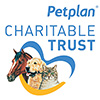
.png)